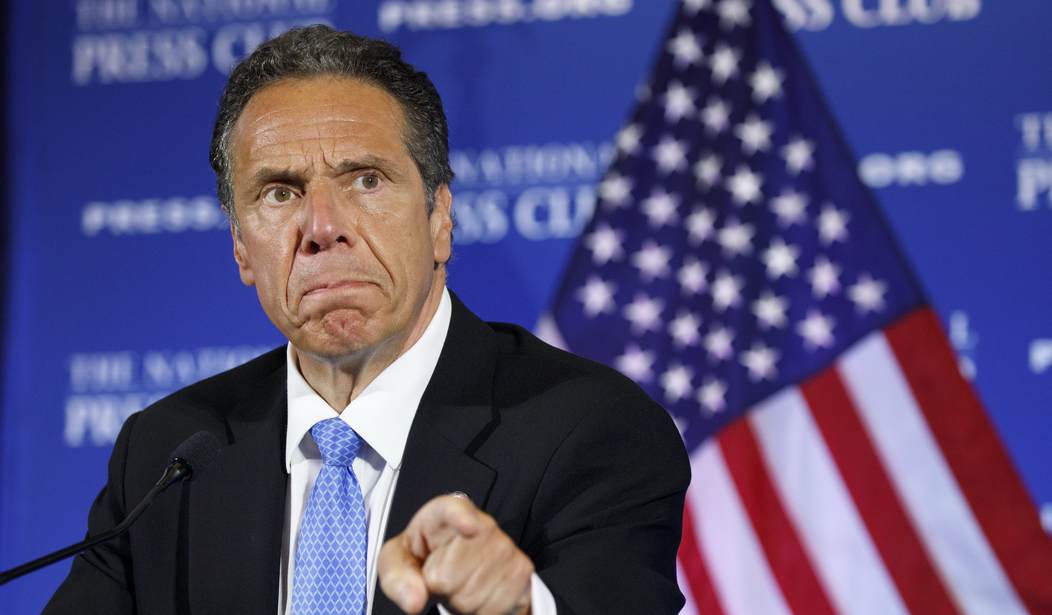The United States Supreme Court issued a ruling late Wednesday prohibiting the State of New York from enforcing “the Governor’s severe restrictions on the applicants’ religious services” in a case brought by the Roman Catholic Diocese of Brooklyn and Agudath Israel of America, an Orthodox Jewish organization, in a 5-4 vote.
BREAKING: Supreme Court votes 5-4 to grant Catholic Diocese and orthodox Jews' request to block Gov. Cuomo's attendance limits at houses of worship in New York.
Chief Justice Roberts joins the three liberal justices in dissent.
— Steven Mazie (@stevenmazie) November 26, 2020
The per curiam opinion begins:
Respondent is enjoined from enforcing Executive Order 202.68’s 10- and 25-person occupancy limits on applicant pending disposition of the appeal in the United States Court of Appeals for the Second Circuit and disposition of the petition for a writ of certiorari, if such writ is timely sought.
The applicants have clearly established their entitlement to relief pending appellate review. They have shown that their First Amendment claims are likely to prevail, that denying them relief would lead to irreparable injury, and that granting relief would not harm the public interest.
Noting that New York’s regulations treat houses of worship differently than even non-essential businesses in Red Zones, the majority found:
The applicants have made a strong showing that the challenged restrictions violate “the minimum requirement of neutrality” to religion.
[T]he regulations cannot be viewed as neutral because they single out houses of worship for especially harsh treatment.
As such, these regulations must meet “strict scrutiny.”
And, the majority found, “it has not been shown that” granting the application and therefore allowing houses of worship to operate at full capacity will harm the public.
As noted, the State has not claimed that attendance at the applicants’ services has resulted in the spread of the disease. And the State has not shown that public health would be imperiled if less restrictive measures were imposed.
It’s about the data and science, right?
The majority also addressed the intersection of public health and constitutional rights (emphasis added):
Members of this Court are not public health experts, and we should respect the judgment of those with special expertise and responsibility in this area. But even in a pandemic, the Constitution cannot be put away and forgotten. The restrictions at issue here, by effectively barring many from attending religious services, strike at the very heart of the First Amendment’s guarantee of religious liberty.
Before allowing this to occur, we have a duty to conduct a serious examination of the need for such a drastic measure.
The dissenting opinion, held by Justices Breyer, Sotomayor, Kagan, and Chief Justice Roberts, held that since New York’s regulations have changed (allowing 50% capacity instead of 25%) since the suits were filed, the circumstances had changed, and that the situation was no longer such an emergency.
Roberts penned his own dissent, which highlights what a disappointment he is. The TL;DR version is, “Well, now you can have 50 percent capacity, which is what you asked for, and Cuomo gave you that, so if he changes his mind again come back and see us. Also, we’re in the middle of a pandemic so we really have to take what public health officials say seriously, and maybe these restrictions violate the Constitution but since I don’t HAVE to take a stand right now, I won’t, but I’ll throw shade at the majority while I’m here.”
Some of the actual words of his dissent:
I would not grant injunctive relief under the present circumstances. There is simply no need to do so. After the Diocese and Agudath Israel filed their applications, the Governor revised the designations of the affected areas. None of the houses of worship identified in the applications is now subject to any fixed numerical restrictions. At these locations, the applicants can hold services with up to 50% of capacity, which is at least as favorable as the relief they currently seek.
Numerical capacity limits of 10 and 25 people, depending on the applicable zone, do seem unduly restrictive. And it may well be that such restrictions violate the Free Exercise Clause. It is not necessary, however, for us to rule on that serious and difficult question at this time. The Governor might reinstate the restrictions. But he also might not. And it is a significant matter to override determinations made by public health officials concerning what is necessary for public safety in the midst of a deadly pandemic.
The ruling shows the importance of confirming the newest member of the Court, Associate Justice Amy Coney Barrett.














Join the conversation as a VIP Member